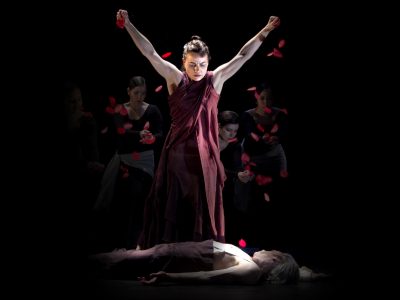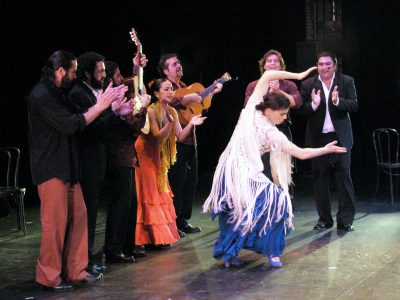- News
- The Unexpected Alchemy of Flamenco and Greek Tragedy
The Unexpected Alchemy of Flamenco and Greek Tragedy
By Taryn Plater
In 441 BC, Sophocles’ classic play Antigone warned citizens of Athens about the dangers of an oppressive government, depicting a heroine who rebels in the interest of personal freedom. 2377 years later, Spain was thrown into a civil war which would last three years, and the repercussions of which would still be felt decades later.
The tragedy of Antigone has been adapted countless times. From new translations to operas, the story of a girl who defies the state in order to honour her family has resonated with audiences worldwide. But of all genres, what could bring this ancient story to life better than passionate, rebellious flamenco?
The New York City troupe Noche Flamenca seized this opportunity, and in 2014, Noche Flamenca’s Antigona premiered to enduring acclaim.
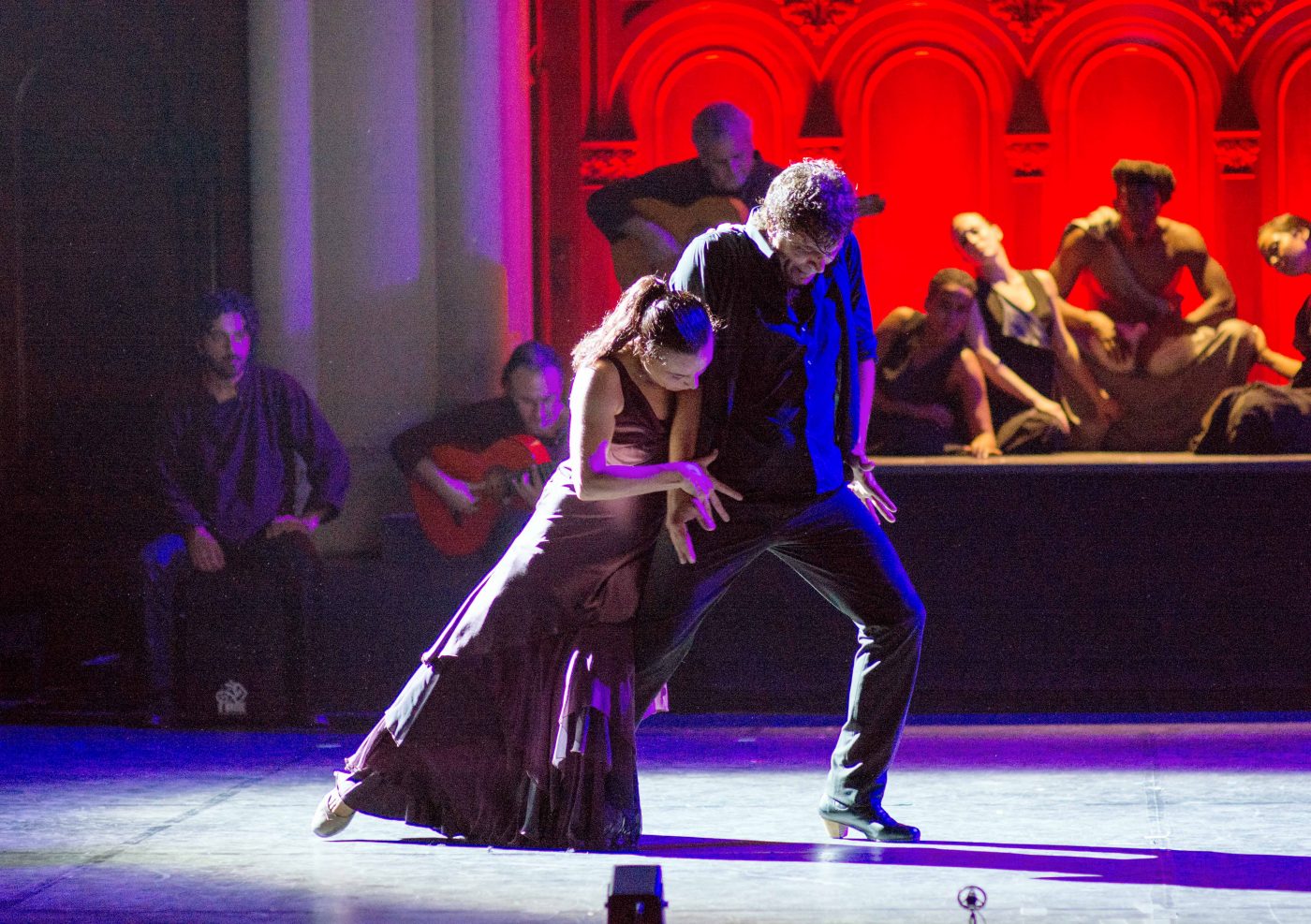
Accustomed to expressing high passion and fatalistic ideas through music and movement, flamenco companies are better equipped than most theatrical troupes to take on Greek tragedy.
The New York Times
In 2010, Judge Baltasar Garzón advocated for the proper burial of those who fought against Franco during the Spanish Civil War. For this, Garzón was suspended from the Spanish court. This injustice helped spur artistic director Martín Santangelo to tell Antigone’s eerily topical story.
With this retelling, Santangelo draws parallels between Antigone’s story of principled disobedience and the injustices in our world. Creon’s almost arbitrary choice to glorify one brother and shame the other brings our attention to the irrationality of valuing one group of people over another, be it based on ideology, ethnicity, or other loyalties. Santangelo sees this injustice as it relates to those who were on the ‘wrong side’ of the Spanish Civil War, but countless other examples exist today.
Most striking of course, is the parallel between Creon’s decry to leave Polyneices’ corpse unburied on the battlefield, and the unmarked mass graves of insurgents against Franco’s rule. The disappearances of many dissenters, famously among them the poet Federico García Lorca, were not to be spoken of at the time, and these unmarked graves are still being identified today.
I read that in the paper, and I thought, it’s ‘Antigone’—demagogues not just killing people but leaving them in the dirt, dishonoring them. - Martín Santangelo
The New Yorker
A nearly perfect parallel – for Creon, citizenship and the right to burial is based on complete loyalty to the state. When Polyneices attacked, he became a foreigner in the eyes of Creon, and no longer had rights as a citizen of Thebes.
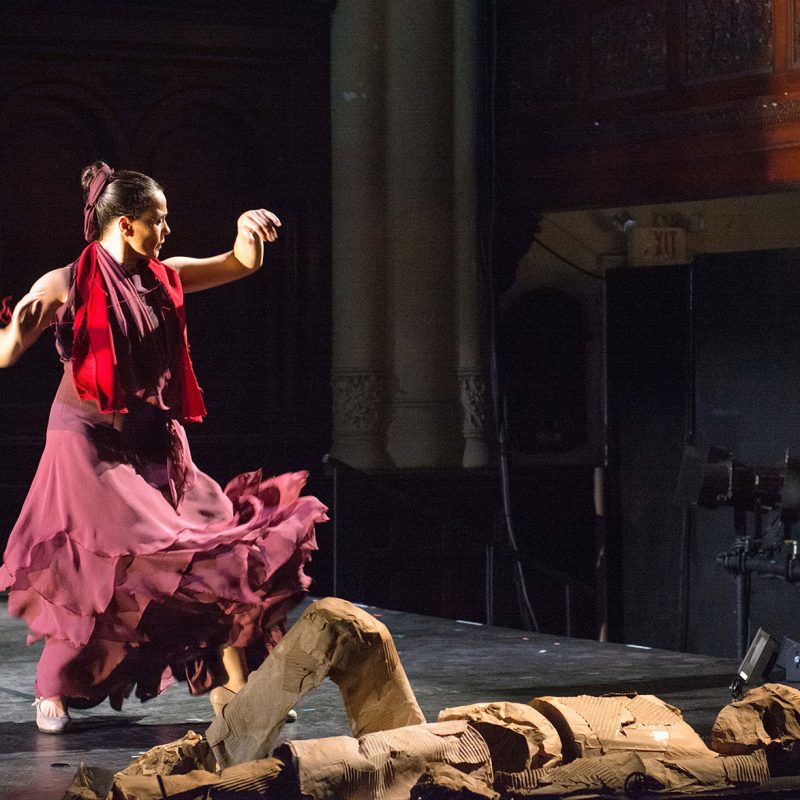
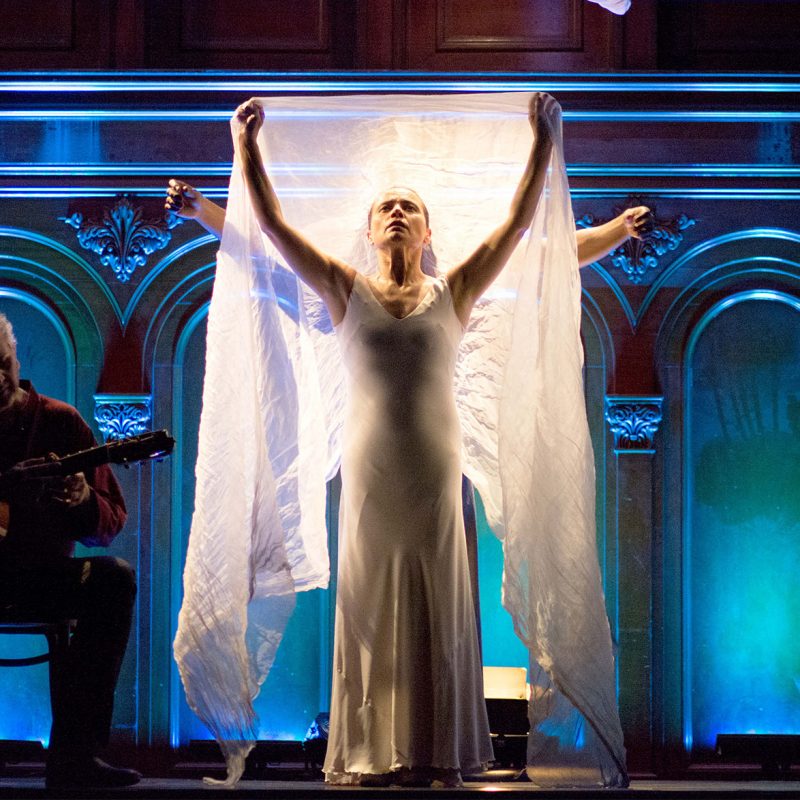
Flamenco has its roots in the mixing of cultures. It flourished under oppression when marginalized groups were brought together by common hardship, and it has been a vehicle for impassioned and defiant expression ever since. Noche Flamenca’s use of the dance form to express Antigone’s personal and moral rebellion seems only natural.
Between the chaos of the Spanish Civil War and the destruction of World War II, flamenco became less common during the 1930s and 40s – just when its themes were most relevant. Nevertheless, the art form experienced a second heyday in the 60s and 70s as artists incorporated jazz and other new cultural influences. As war and the impact of Franco’s regime persist, so does the use of flamenco to counter these and other tyrannies.
Noche Flamenca’s Antigona does a service to both flamenco and Greek tragedy. In marrying two of the most compatible and relevant performance genres, this adaptation conveys to a new audience the contradictions and warnings that Sophocles communicated thousands of years ago.
Antigona is a play to be seen and experienced, but most of all, to be felt. If you let it wash over you like a wave, you might just hear Sophocles in the background, clapping his hands in time to the rhythm.
StageBuddy
Taryn Plater is in her fourth year at UBC, pursuing a dual degree in Music and Linguistics, and a Master of Management. She is passionate about expanding the role of the performing arts in our society, and is currently Marketing & Communications Assistant at the Chan Centre for the Performing Arts.
Noche Flamenca’s Antigona will be at the Chan Centre on Sunday March 12, 2017 at 7pm.

